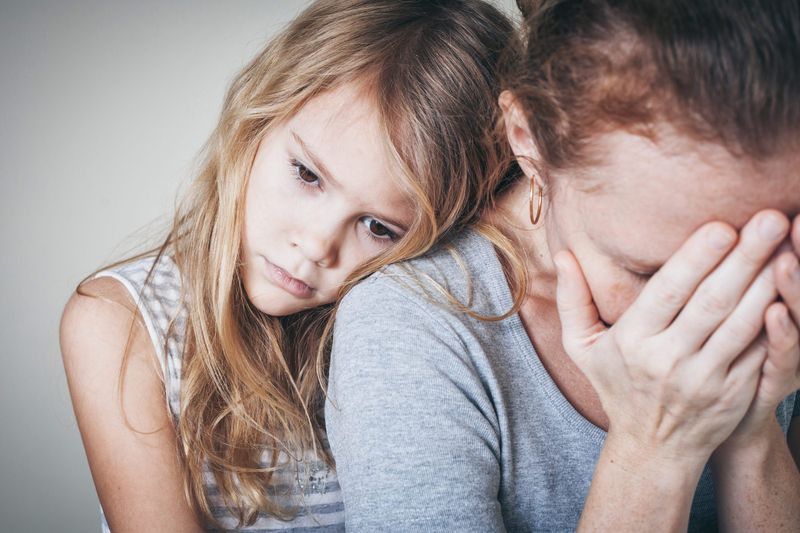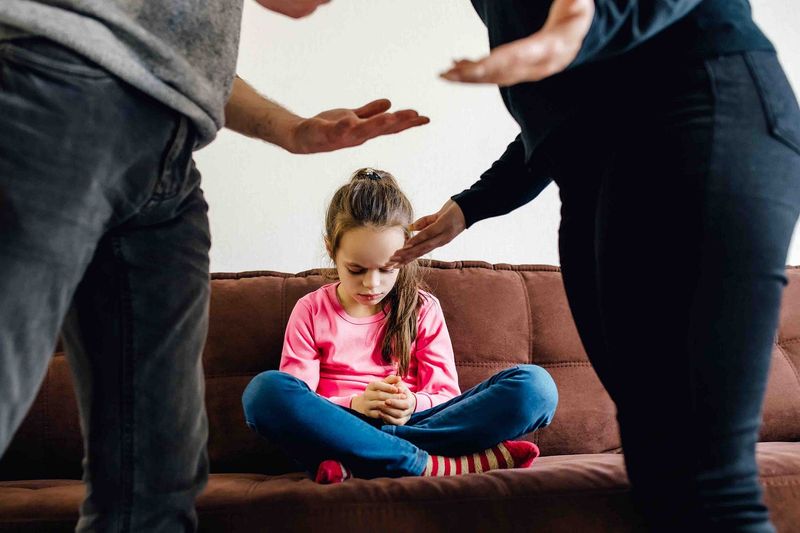Therapists Reveal 10 Reasons Some Adult Children Cut Ties With Their Parents

Family relationships are changing in today’s world. Many adult children are making the difficult choice to distance themselves from their parents, sometimes completely cutting ties. This painful decision rarely happens suddenly – it’s usually the result of years of hurt, misunderstanding, and unresolved issues. Understanding why this happens can help both parents and children navigate these challenging family dynamics.
1. Ongoing Emotional Abuse

Years of put-downs, harsh criticism, and emotional manipulation create deep wounds that don’t easily heal. Many adult children report feeling constantly belittled, having their achievements dismissed, or being made to feel they’re never good enough.
The pain compounds over time. What parents might dismiss as “tough love” or “just joking around” can actually crush a child’s self-esteem and create lifelong insecurities.
Eventually, physical distance becomes necessary for emotional survival. Therapy often reveals that what some parents considered normal family behavior was actually harmful emotional abuse that would never be accepted in other relationships.
2. Parents Who Refuse to Respect Boundaries

Showing up unannounced, giving unwanted advice, or ignoring explicit requests to stop certain behaviors signals a fundamental lack of respect. When parents consistently trample boundaries, adult children often feel their only option is to build higher walls or remove themselves entirely.
The pattern typically escalates over time. A parent who can’t accept their adult child’s independence might increase boundary violations when faced with initial pushback.
Many estranged adult children report trying numerous times to establish healthy boundaries before cutting contact. The final break often comes after years of explaining, pleading, and attempting to maintain a relationship with clear limits.
3. Unaddressed Mental Health Issues

Parents struggling with untreated depression, anxiety, personality disorders, or addiction create unpredictable home environments. Children raised in these situations often spend years trying to help parents who refuse treatment while suffering the emotional fallout themselves.
The damage continues into adulthood. Many adult children describe the exhaustion of being their parent’s emotional caretaker while receiving little support for their own needs.
The breaking point frequently comes after attempting to maintain contact while protecting their own mental health becomes impossible. Modern therapy emphasizes that children are not responsible for managing their parents’ mental health, giving many permission to finally step away.
4. Political and Value Differences

Family gatherings turn into battlegrounds when fundamental beliefs clash. What starts as disagreements about politics, religion, or social issues can evolve into deep divides when parents refuse to respect differing viewpoints or constantly try to convert their children.
The relationship deteriorates when parents reject core aspects of their child’s identity. LGBTQ+ children, those who marry outside their parents’ approved religious or cultural groups, or those who choose different lifestyles often face painful ultimatums.
Many adult children report trying for years to maintain relationships despite differences before reaching their limit. The final straw often comes when parents make it clear they value their beliefs over their relationship with their child.
5. Childhood Trauma That Parents Deny Ever Happened

“That never happened” or “you’re too sensitive” are phrases that retraumatize adult children trying to heal from painful childhood experiences. When parents refuse to acknowledge past harm—whether it was physical abuse, neglect, or exposing children to dangerous situations—they block any path to reconciliation.
The gaslighting effect compounds the original trauma. Many adult children describe feeling crazy or doubting their own memories when parents rewrite family history.
Therapy often confirms that their experiences were real and valid. The decision to cut contact frequently comes after realizing that maintaining a relationship requires accepting a false narrative about their own life and continuing to endure harmful behavior.
6. Financial Control Used as Manipulation Tactics

Money becomes a weapon when parents use financial support to control adult children’s life choices. Threats to cut off college funds, inheritance, or family business opportunities create impossible situations where independence comes at a steep price.
Strings attached to every gift or loan create ongoing power imbalances. Many adult children describe the humiliation of having parents dictate their career choices, living arrangements, or even romantic partners in exchange for financial help.
Breaking free often means choosing financial hardship over emotional servitude. The relief that comes with refusing financial help, despite the practical challenges, signals how damaging these arrangements become to an adult’s sense of autonomy and self-worth.
7. Toxic Relationships With New Partners or Step-Parents

Family dynamics shatter when parents prioritize new relationships over their children’s wellbeing. Many adult children describe years of trying to navigate relationships with step-parents who were abusive, dismissive, or actively worked to damage the parent-child bond.
The betrayal cuts deep when biological parents side with new partners against their children. Statements like “that’s just how they are” or “you need to try harder” place the burden of maintaining healthy relationships entirely on the child.
The breaking point often comes after realizing their parent will never prioritize their safety or emotional needs. Many describe the painful recognition that their parent has effectively chosen their new family over their original one.
8. Parents Who Undermine Adult Children’s Parenting Choices

Grandparents who deliberately ignore parents’ rules for their children create impossible situations. Secretly feeding kids forbidden foods, allowing activities parents have prohibited, or criticizing parents in front of children damages multiple relationships at once.
The pattern reveals a fundamental lack of respect. Many adult children report trying repeatedly to explain boundaries regarding their children, only to have parents dismiss these limits as unimportant or unnecessary.
The final break often comes when protecting their own children becomes the priority. Many parents describe the painful realization that the same boundary violations they experienced as children are now threatening their own parenting relationship, creating a cycle they must break for their children’s sake.
9. Refusing to Acknowledge or Apologize for Harmful Behavior

“I did the best I could” becomes a shield against accountability when parents use it to dismiss legitimate grievances. The inability to acknowledge mistakes or offer genuine apologies prevents healing and keeps relationships stuck in harmful patterns.
Adult children often spend years trying to address past hurts only to face defensiveness or dismissal. Many report their parents turning the tables by claiming to be the victims when confronted with their behavior.
The decision to step away frequently comes after recognizing that the relationship can never evolve without acknowledgment of harm. Many describe the liberating realization that they don’t need to keep seeking an apology that will never come to move forward with their own healing.
10. Choosing Self-Preservation Over Family Obligation

“Family comes first” becomes a toxic mandate when it means accepting ongoing harm. Many adult children describe reaching a breaking point where they realize maintaining contact is destroying their mental health, relationships, or ability to function.
Physical symptoms often develop from the stress of toxic family dynamics. Anxiety, depression, insomnia, and even autoimmune conditions can improve when contact is reduced or eliminated.
The shift from guilt to liberation marks a turning point for many. Cultural expectations around family obligation are powerful, but more adults are recognizing that self-preservation isn’t selfish—it’s necessary. Many report finding chosen family that provides the healthy relationships their biological family couldn’t offer.

Comments
Loading…